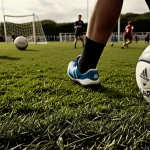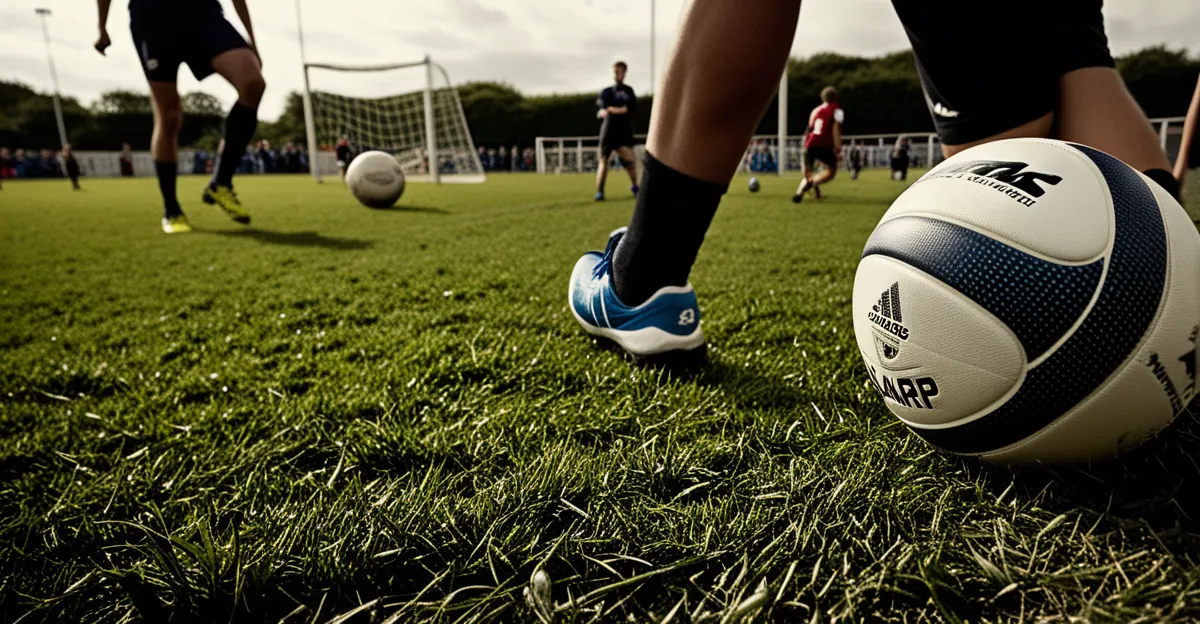Key Barriers to UK Sports Talent Development
Small text here to introduce the topic clearly and concisely
One of the foremost UK sports talent challenges lies in the multifaceted barriers that hinder the progression of promising athletes. Primary obstacles include limited funding, uneven access to facilities, and the inconsistent quality of coaching. These sports development obstacles contribute collectively to a fragmented talent pipeline, making it harder for young athletes to reach elite levels.
Also to see : How Can Playing Sports Impact Mental Health in the UK?
Addressing these barriers to sports talent is essential for ensuring the UK remains competitive on the global stage. Without strategic intervention, talent identification suffers, and potential remains untapped due to socioeconomic factors, geographical isolation, or lack of support systems.
For example, young athletes from underserved regions encounter fewer opportunities due to inadequate local infrastructure and limited programs. Furthermore, the imbalance between grassroots investment and funding for elite sports creates a divide that stifles long-term development.
Also to discover : What role do UK sports play in promoting gender equality?
Combating these challenges requires a holistic approach, focusing on equitable resource distribution, enhancing coaching quality, and expanding access. Clearly recognising and tackling these UK sports talent challenges sets the foundation for a future where athletes are empowered to excel regardless of background or location.
Funding and Resource Limitations in Talent Development
An important sports funding UK challenge is the uneven allocation of resources between elite and grassroots levels. Limited funding restricts the availability of quality training, equipment, and competitive opportunities crucial for nurturing talent from an early stage. Evidence shows that resource allocation sports often favours elite programs, leaving grassroots initiatives underfunded and less effective at broad-based talent identification.
This funding disparity varies by sport and region. For example, sports with higher visibility and commercial appeal tend to receive disproportionately more support. Meanwhile, emerging or community-based programs struggle to maintain consistent investment, creating sports development obstacles that reduce accessibility and long-term athlete retention.
Recent funding trends reveal incremental government increases, but critics argue these do not sufficiently address foundational gaps. Without balanced investment, many promising athletes lack the necessary support to progress. This imbalance also affects coaching development and facility improvements, compounding the challenge.
In summary, tackling barriers to sports talent related to funding requires targeted policies that prioritize equitable distribution. Ensuring that both elite and grassroots levels receive adequate resources is essential for a sustainable UK sports talent pipeline.
Accessibility and Facility Gaps Across the UK
Access to quality sports facilities remains a critical barrier to sports talent development in the UK. Many regions face significant disparities in sports facility access, with rural areas and deprived urban zones often lacking adequate venues and equipment. This uneven distribution directly limits athlete participation and progression, as consistent training environments are essential for talent nurturing.
Socioeconomic factors compound these issues. Families from lower-income backgrounds frequently encounter additional hurdles, such as travel costs and membership fees, which restrict their children’s ability to engage regularly in sports. This creates a cycle where promising athletes remain undiscovered because they cannot access appropriate facilities.
Facility disparities in the UK also mean that some regions have stronger support networks and opportunities, impacting equitable talent development nationwide. For example, metropolitan areas tend to have multiple high-quality venues, while others rely on outdated or insufficient infrastructure. Such inequality hinders the identification and retention of sports talent across the country.
Improving regional sports opportunities requires strategic investments in facility upgrades and community programs that lower participation barriers. Enhancing sports facility access is not merely a question of infrastructure but an essential step toward fostering an inclusive and effective athlete development system.
Coaching Quality and Support Systems
High coaching standards UK are vital for transforming raw potential into elite performance. Quality coaches provide technical skills, motivation, and tailored development crucial at every stage of an athlete’s progression. However, sports coach development faces challenges such as inconsistent training programs and limited access to continuous professional development, particularly outside major urban centres.
Many coaches juggle part-time roles or volunteer positions due to inadequate pay or recognition, affecting retention and creating a shortage of experienced mentors. This directly impacts the consistency and effectiveness of athlete training, forming a significant barrier to sports talent.
Strong mentor support sports programs have demonstrated success in retaining athletes and providing guidance through performance plateaus or setbacks. For example, structured mentorship in academy systems offers emotional and tactical support, which is often missing in grassroots settings.
To improve coaching standards UK, investment in affordable, widespread coach education and clear career pathways is essential. Such measures ensure coaches remain updated on best practices, boosting athlete development. Implementing comprehensive support systems also fosters resilience and confidence among athletes, addressing both technical and psychological needs critical to overcoming sports development obstacles.
Diversity, Inclusion, and Equal Opportunity
Small text here to introduce the topic clearly and concisely
Sports diversity UK faces notable challenges, with disparities in participation linked to gender, ethnicity, and disability. These barriers to sports talent development often result from systemic biases and unequal access to resources or opportunities. For instance, female athletes and ethnic minorities frequently encounter fewer pathways and less visibility, limiting their progression in competitive sports.
Inclusion in sports is vital to unlocking the full potential of the UK’s talent pool. Efforts to promote equality opportunities athletics include targeted outreach programs, scholarships, and campaigns challenging stereotypes. These initiatives create more inclusive environments, encouraging underrepresented groups to engage and thrive.
Recent studies highlight that while progress has been made, significant gaps remain. For example, disabled athletes still face infrastructure and coaching limitations, illustrating persistent sports development obstacles. Understanding these nuances is essential. Addressing these UK sports talent challenges requires sustained commitment, policy shifts, and community engagement to ensure all athletes, regardless of background, receive equitable support and opportunities.
Educational Pressures and Dual Pathways
Balancing education vs sports remains a significant barrier to sports talent in the UK. Many young athletes face intense athlete academic pressures, with demanding schoolwork competing against rigorous training schedules. This conflict often forces difficult choices: prioritising education may reduce time for skill development, while focusing heavily on sports can risk academic underperformance.
How do dual career challenges affect athlete progression? The tension between academic commitments and sporting ambitions leads to burnout, reduced performance, or dropping out of either school or sport. Limited flexible schooling options exacerbate this sports development obstacle, particularly for athletes aiming to compete at elite levels while completing formal education.
Support structures are crucial in navigating these pressures. Some schools and sports bodies have introduced tailored timetables or remote learning to accommodate training. However, such systems are not universally available, creating unequal opportunities depending on region and institution.
Policy recommendations stress the importance of integrated academic and athletic pathways. Encouraging collaboration between educational authorities and sports organisations can create comprehensive frameworks supporting young athletes. This dual approach helps ensure talent is nurtured without sacrificing educational achievement, thereby addressing key UK sports talent challenges and fostering future success on and off the field.
Expert Perspectives and Recent Findings
Recent sports development reports UK offer critical insights into persistent and emerging UK sports talent challenges. Experts emphasise that while progress has been made in areas like funding and diversity, significant sports development obstacles remain, particularly in grassroots accessibility and coaching quality.
What do experts identify as the most pressing issues? According to the latest research, disparities in resource allocation and regional facility gaps continue to limit talent identification and retention. These findings are supported by robust statistics showing that athletes from underfunded areas face greater dropout rates, highlighting systemic inequities.
Expert opinions on solutions often focus on comprehensive policy reforms combining increased investment with targeted support for coaching and infrastructure. Notably, studies recommend enhanced data collection to monitor athlete development pathways effectively, ensuring that interventions address specific barriers to sports talent.
Furthermore, current research UK talent emphasises the importance of integrated support systems, combining academic, psychological, and physical development. Case studies reveal that multifaceted approaches yield better retention and performance outcomes.
By closely following expert guidance and empirical evidence from sports development reports UK, policymakers and stakeholders can craft informed strategies. These will help bridge gaps and create a more equitable and effective sports talent ecosystem across the UK.









